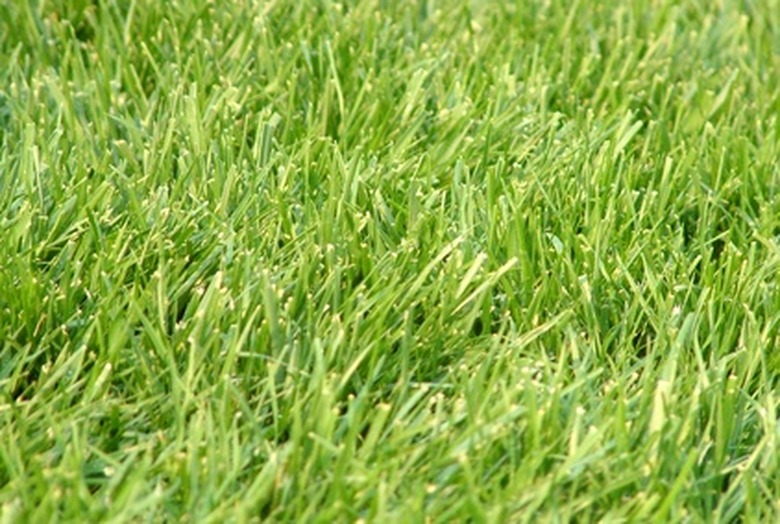The Best Way To Kill Weeds In Bermuda Grass
Bermuda grass makes a lush and thick lawn. It is grown primarily in the southern United States because it is a warm season grass. This grass thrives in locations that have a long season of soil temperatures over 65 degrees F. Bermuda grass spreads through above ground stolons and below ground rhizomes which are basically shoots from the parent plant. These root and take hold to form new plants. Occasionally, weeds can take hold and become problematic in your Bermuda grass lawn. With a few easy practices you can kill weeds in Bermuda grass and restore your lawn to its former healthy self.
Step 1
Fertilize your Bermuda grass with 1 to 2 lbs of nitrogen per 1,000 sq. ft. every four to six weeks during the growing season. The lawn fertilizer bag will specify what to set your broadcast spreader at. This promotes healthy, lush turf which will choke out and kill many weeds.
- Bermuda grass makes a lush and thick lawn.
- Occasionally, weeds can take hold and become problematic in your Bermuda grass lawn.
Step 2
Irrigate your Bermuda grass with 1 to 2 inches of water per week over one to two waterings. Set a pan out on the lawn to measure how long it takes to supply that much water. Adequate irrigation also allows the grass to become thick and lush and promotes the chokin-art.html'>choking out of weeds.
Step 3
Mow your grass frequently. A lot of weeds don't tolerate frequent mowing and will die out. Your goal is to never remove more than 1/3 of the grass blade at once so set your mowing frequency with that in mind. For Bermuda grass you need to typically mow it every five to seven days.
- Irrigate your Bermuda grass with 1 to 2 inches of water per week over one to two waterings.
- For Bermuda grass you need to typically mow it every five to seven days.
Step 4
Apply an herbicide that contains the broadleaf herbicide 2,4-D. Weed-B-Gon is a popular brand that contains this chemical. Herbicides typically come in a bottle that attaches to the garden hose which makes application easy. Simply spray over the entire yard until all the foliage has been moistened. The herbicide will kill broadleaf weeds like dandelions and clover, but will leave the grass unscathed.
Tip
Proper care practices will keep the weeds from coming back in your yard. By promoting a thick and lush turf through good fertilization, irrigation and mowing practices, weeds will struggle to survive in your yard. Apply chemical herbicides on days that aren't windy. This will prevent overspray from drifting onto desirable plants.
Things Needed
- Lawn fertilizer
- Broadcast spreader
- Lawn sprinklers
- Garden hose
- Water source
- Pan
- Lawn mower
- Herbicide containing 2,4-D
